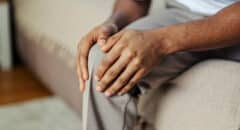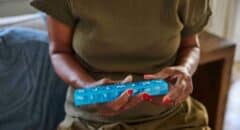 Gun violence is a public health concern in many eyes. Statistics from a 2016 Washington Post says there are more than 11,000 deaths as a result of murder or manslaughter involving a gun. We see the effects of gun violence through the lens of the television, but what actually happens to the person affected?
Gun violence is a public health concern in many eyes. Statistics from a 2016 Washington Post says there are more than 11,000 deaths as a result of murder or manslaughter involving a gun. We see the effects of gun violence through the lens of the television, but what actually happens to the person affected?
A missing limb or a wheelchair only tells part of the story. The body goes through a number of changes when a bullet enters at 900 miles per hour. This isn’t like the movies where people die instantly over their wounds. This is being in excruciating pain for several days or weeks while incapacitated. Our findings tell a tale of extreme trauma and pain during this unfortunate moment.
What Does It Feel Like to Be Shot
You lose consciousness when you are shot in the head. However, you experience excruciating pain when you’re shot in other places such as your abdomen, back, neck or groin. You don’t normally die instantly which means you can be in physical pain for hours before dying. Wounds to the heart often turn deadly within minutes.
Doctors who specialize in treating gunshot wounds have said that people die from internal bleeding mostly. When patients come in the trauma center they’re assessed for where the bleeding is coming from. Doctors do their best to clamp and control areas most affected, but it can come at the cost of sacrificing organs in extreme cases.
The physical trauma of being shot is one thing, but the psyche is affected just as much. Paranoia is one way to describe the looming suspicions gunshot survivors live with. Going to holiday outings on the 4th of July can be triggering because of the fireworks. The feeling of expecting to be shot again can be a large mental pill to swallow.
Victims can also experience body image issues due to loss of limbs, disfiguration or other changes associated with their bodies. These reminders of what was and what could’ve been create a host of challenges for everyday life. From one doctor’s perspective, he says the victims often don’t regain that sense of their old selves due to the experience.
What is the Impact of Gunshot Wounds?
Once the bullet pierces your skin it doesn’t take a straight path. This circuitous route provides a number of problems for treatment. Bullets can splinter inside of your body leaving behind damage even in places where the bullet didn’t enter. This causes certain parts of the body susceptible to issues like damage that compromise the overall functioning of the intestines, paralysis, infection and possible amputation. Wounds are very hard to treat because bullets can expand, ricochet and break off once inside your body.
How to Support Someone Whose Been Shot
The best way to support someone who's been shot is to immediately stop the bleeding. Apply as much pressure to the wound as possible. Timing is very crucial as some bullet wounds will yield more blood loss than others. Chest wounds suck in air and lead to collapsed lungs due to the severe trauma of the gunshot. Applying an occlusive dressing on the wound will help to slow down some of the blood loss, but ultimately immediate medical attention is needed. For gunshot wounds in the stomach and intestinal areas apply a moist, sterile dressing on top of the wound.
This wound is especially precarious because if they are completely ripped open only immediate medical attention can possibly stop them from bleeding to death. People who don’t bleed to death from this type of wound often pass from infection. Leg or arm wounds can be addressed by applying a tourniquet two to four inches above the wound to stop bleeding. As with all types of wounds, it’s about acting fast, remaining calm and calling 911.
Daunte Henderson, founder of the MADEMAN Foundation, author, and educator based in Chicago. You can follow him at @brotherhenderson on IG










